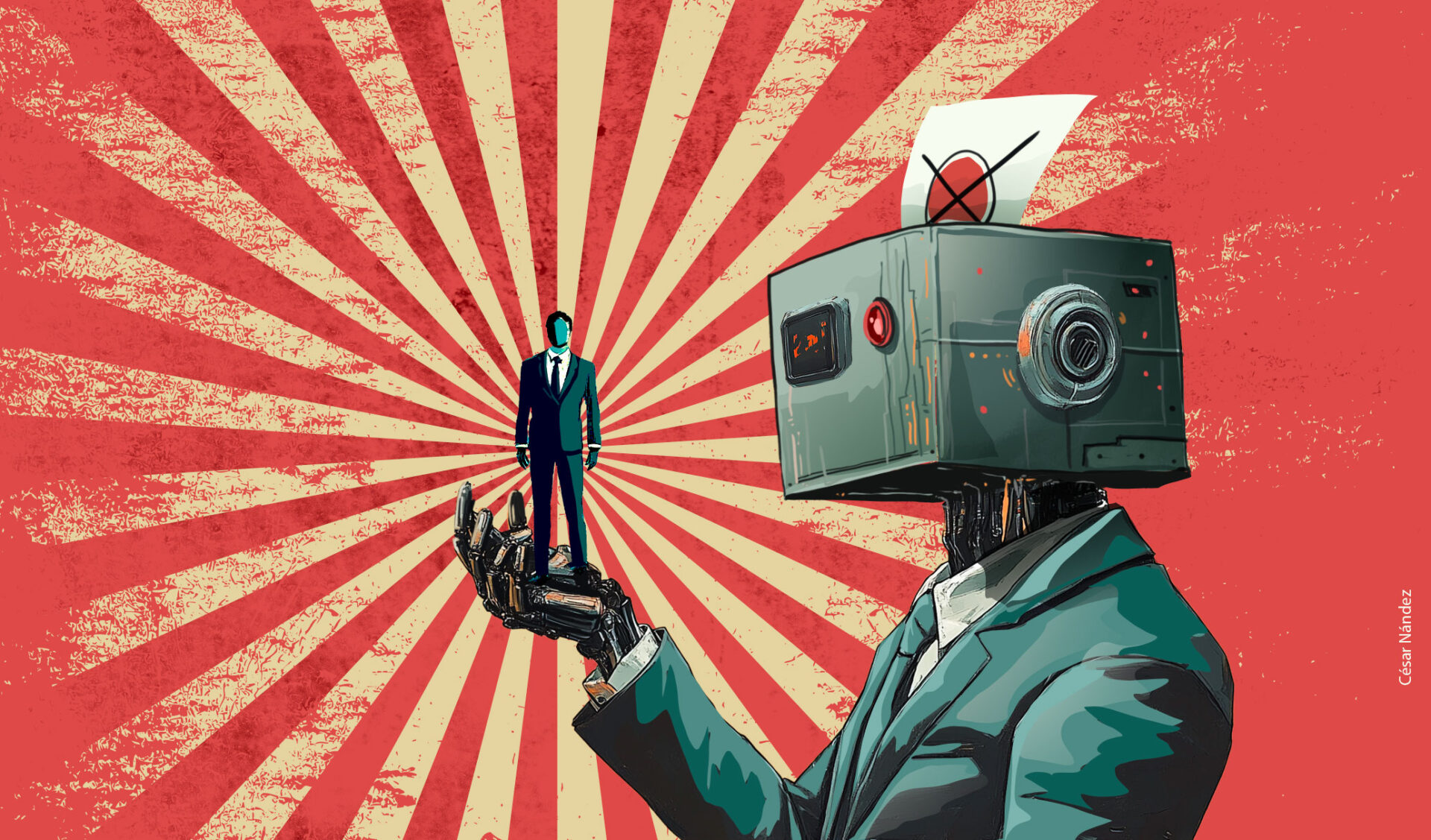“Democracy is the worst system of government except for all the other systems that have been tried,” said Churchill. Indeed, decision-making and execution tends to be more tortuous and slower under democratic institutions than under vertical regimes. On the other hand, when it comes to aspiring to power and voting, the democratic system grants identical rights to all citizens, regardless of differences in knowledge, experience, values, or commitment to the country. But Churchill’s aim with this reflection was to emphasize that, despite its possible weaknesses, democracy was the best system for guaranteeing freedom, equity and human rights.
Today, democracy in the world is threatened not by the doubts derived from its inherent slowness or its principles of political equality, but by the low quality of most of the leaders chosen by vote. Extreme cynicism has taken over the relationship between politicians and the citizenry. Some politicians bet on a presumed lack of wisdom and discernment of the people, specializing in unraveling and deepening their distrust and anger and setting themselves up as their spokespersons. The objective of these politicians is not to build and execute a relevant and realistic development program, but to pile up popularity through spokesperson. The absence of substantive achievements is attributed to the “others”, which deepens the anger and safeguards popularity.
Decisions on how to vote are nuanced, even before the current era of post-truth and fake news, by disinformation. Choices are made mainly under the influence of resentment, lies about opponents and the past, affinities focused on narrow ideological-cultural passages, clientelist transactions, inertia or psychological criteria, such as (“I like him/her”, “He/She has charisma”, “He/She is humble”, “He/She smiled at me”, etc.); none of which is related to the substantive aspirations of most people. To the tendency of the contenders to hide shortcomings and to invent and exaggerate virtues, is added, in the case of a good part of the voters, the inability to, the impossibility of or the disinterest in unraveling who has the attributes that in their criteria should characterize a good president (representative, mayor, governor).
For a voter, the best candidate should be the one who is closest to the materialization of his or her substantive aspirations. This is a minimum requirement for democracy to function. Within these aspirations, as an example, there would be a voter who wants the president to be an environmentalist, a promoter of all human rights, convinced of equalizing access to opportunities for social mobility through government activism, decentralizing, neutral in geopolitical issues, and honest. Another voter might want a president who promotes an economy driven by market forces, biblical on human rights, indifferent to global warming, a staunch ally of the United States, and convinced that cleverness is a higher value than honesty. Likewise, there may be voters who seek a president with political experience and university degrees only, others may aspire to a president with business experience. Still others may want to be governed by a person with a mix of these characteristics, and still others, with a narrower vision, may be interested in a single attribute, for example, a belief in equitable income distribution, a commitment to fiscal discipline, or honesty.
It is around such positions on substantive issues and moral and ideological values that the majority power that democracy must guarantee should be concentrated. I believe that, to achieve this, the democracy of the future must have the following characteristics.
Voters would be presented with two ballots: one with a list of possible substantive decisions on the issues most relevant to development and another with a list of values. Each would vote on each ballot in descending order of preference according to the importance they endorse. Moreover, voters could add issues and values that are not incorporated in the ballots and give them with their vote the ranking of their preference.
Voting would be carried out on phones, computers or smart watches, accessed by an individual password, over several days, so that citizens could decide without pressure the order of their predilections.
Using technological tools (now in common use), the result of the voting would be the list of issues weighted in the order of preference given by the citizens as a whole. This is the same method used in countries where preferential voting exists, only in this case it would be intended to rank preferences in relation to substantive issues, not in relation to names of aspirants.
At this stage of the democratic process — the one focused on substantive issues and values — voters would be choosing the attributes (thinking, personality, experience, etc.) that should characterize the president. Their participation and expression of power would be focused on building by majority vote the programmatic and moral profile of the desired president, not on choosing the president.
In this task, data science would be used as a tool to select among the people aspiring to power the one who comes closest to the government program and the values preferred by the majority of voters. For this, all information records from childhood, incorporated in schools, colleges, universities, clinics, banks, tax authority, property records, migration, ministry of labor, institutions and insurance companies, ministry of transport, judiciary, lawyers’ protocols, surveillance cameras (CCTVs), credit card issuers, internet of things, AI, intelligence agencies, as well as speeches, writings, exams, graduation papers, emails, messages through social networks, etc., would be used.
Given the privacy-protective regulations, a requirement to aspire to the presidency (or deputation, mayoralty, etc.) would be to authorize the electoral authority —who would be responsible for implementing data science— to allow algorithms to search and access all information about the aspirant. The basis of this obligation would be that nothing can be private from whoever aspires to administer the public.
If the president is elected in this way, the weaknesses of democracy pointed out at the beginning would be overcome. The computers and programs that would collect, manage and process the data would choose the candidate who has the personal and conceptual characteristics closest to the values and programmatic and conceptual priorities that voters expect to typify their president. Voters’ lack of information for whatever reason (incapacity, impossibility, or disinterest) would no longer be an obstacle to choosing the person who comes closest to their visions, since that is precisely the problem that the use of data science would solve.
In addition to the aforementioned advantages, this methodology could eliminate the need for political parties and electoral campaigns around individuals. These would focus exclusively on programs and values, since people would be chosen by algorithms.
Every citizen could aspire, as long as they allow full information about their life to be made available to data science algorithms. Then they will be chosen according to what they are and have been, and not according to what they cover, preach and promise in a campaign. In practice, citizens would select the values and the government program of their preference and the algorithms would choose the candidate most identified with those values and that program.
We should not wait for the problems facing the democratic system to destroy it. Rather, we should perfect it, through a route such as using data science as suggested here.
Instead of fearing or denying technological advances, we should maximize their use and put them to our service. Before we allow the enemies of democracy to continue to reap triumphs, let us defeat their methods with technology.
*Translated by Janaína Ruviaro da Silva from the original in Spanish.












